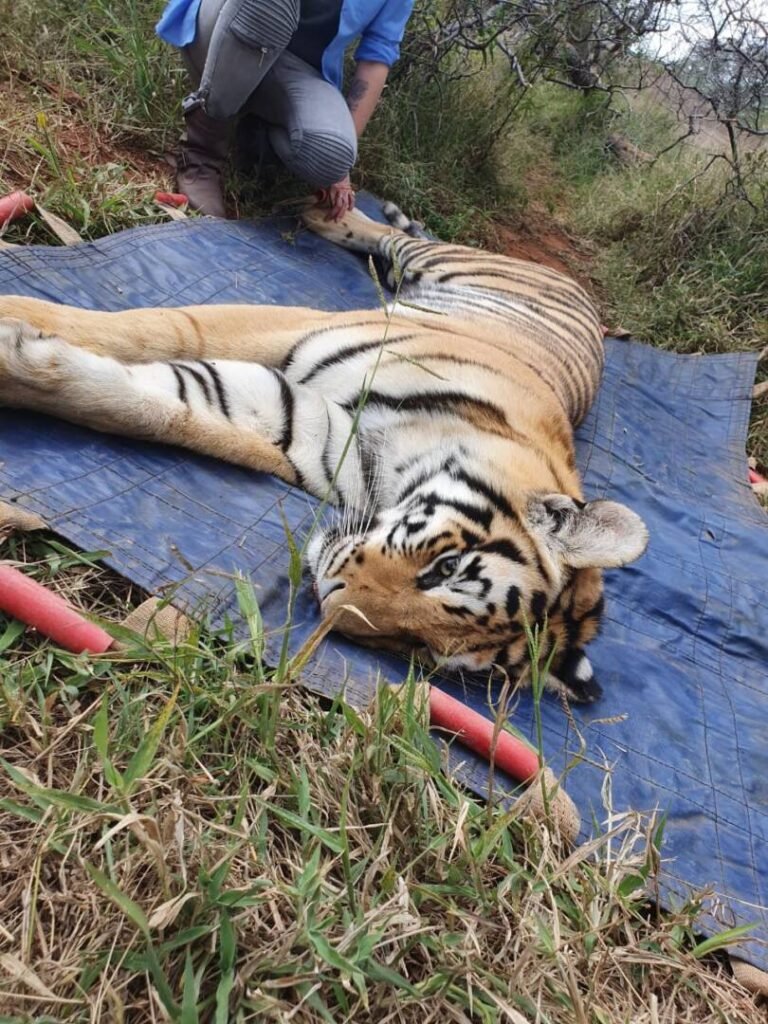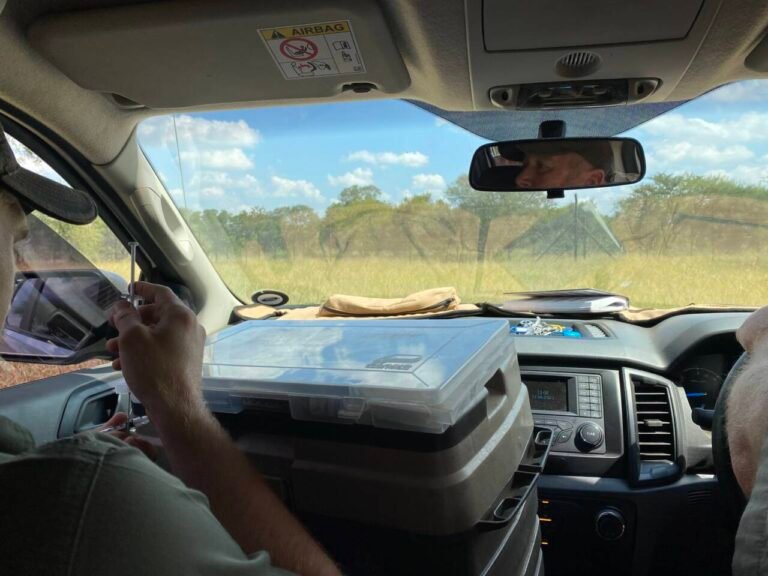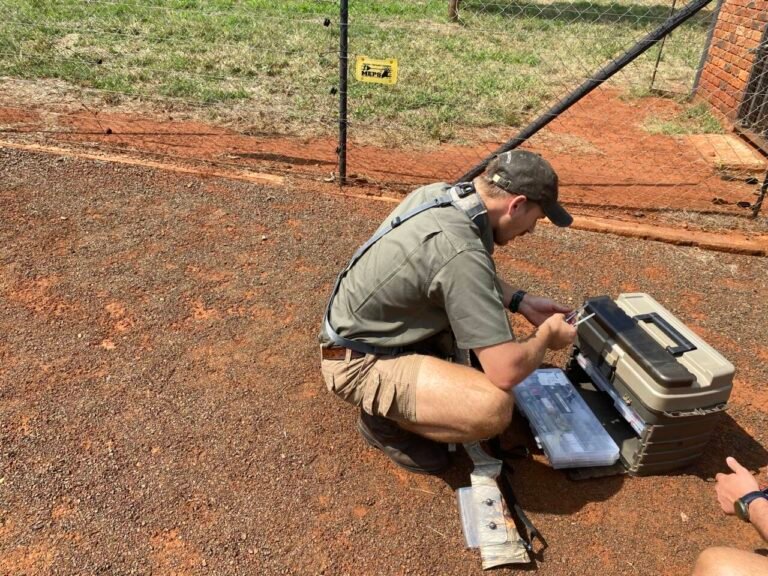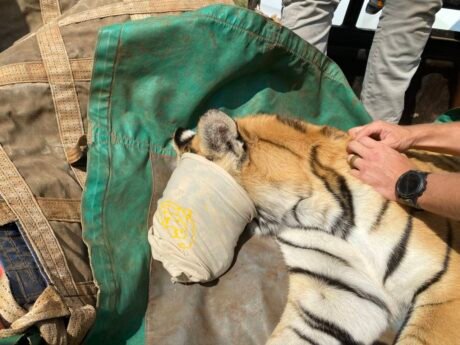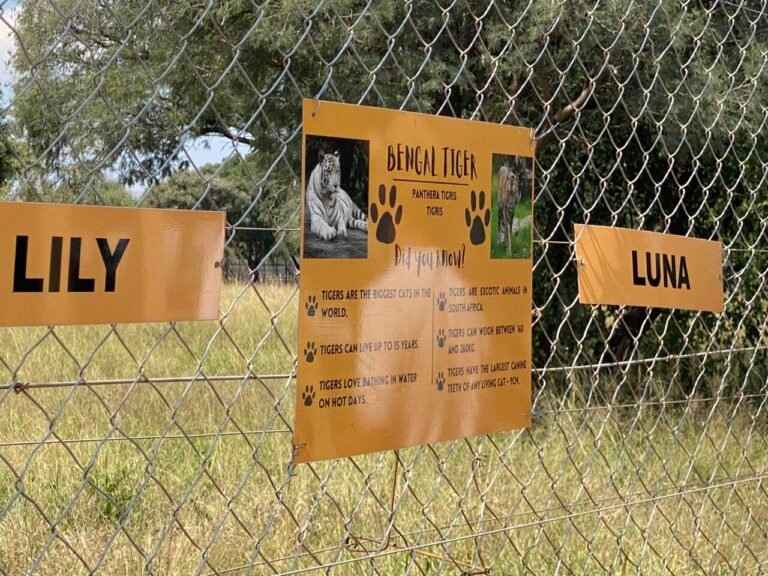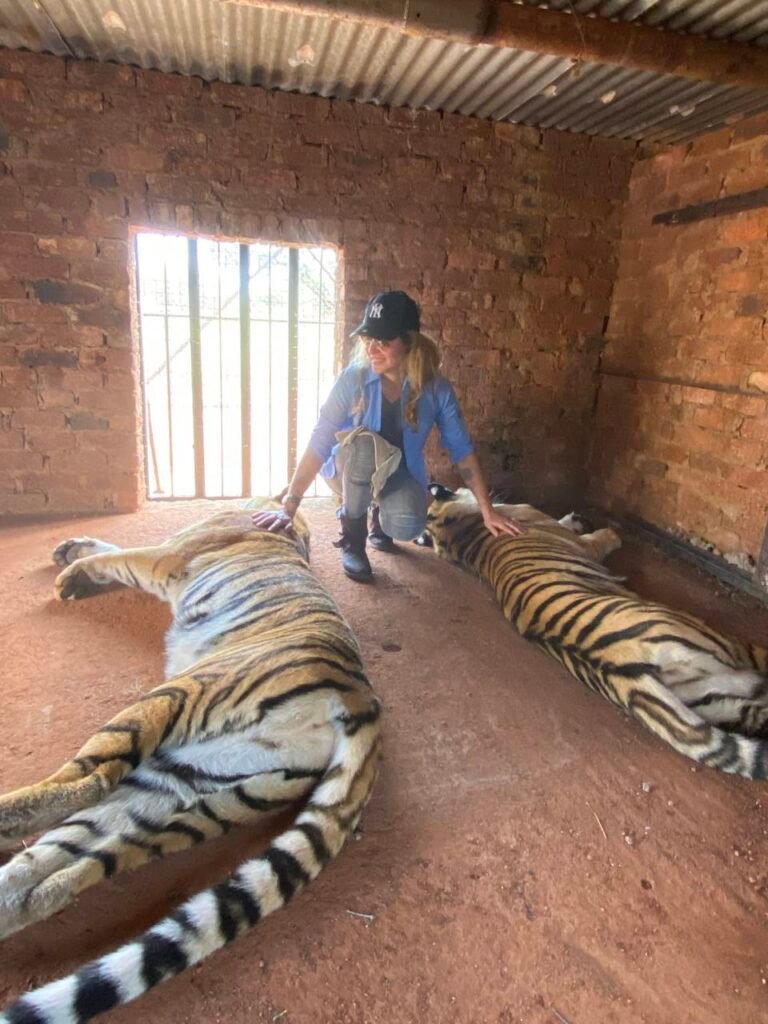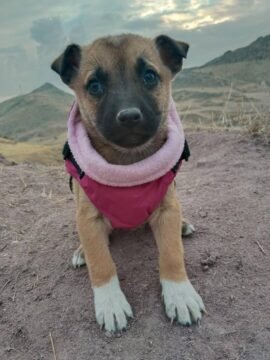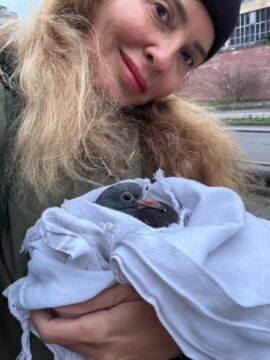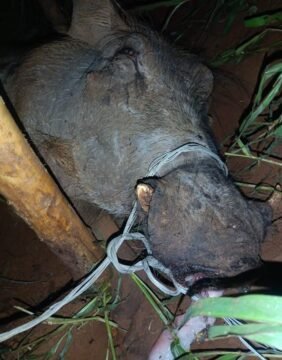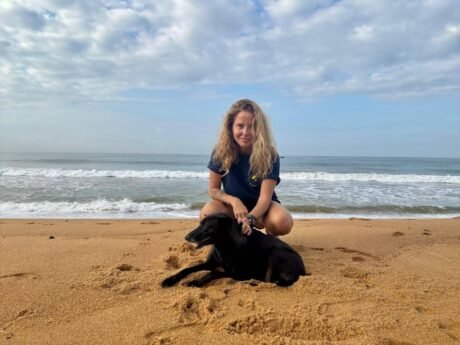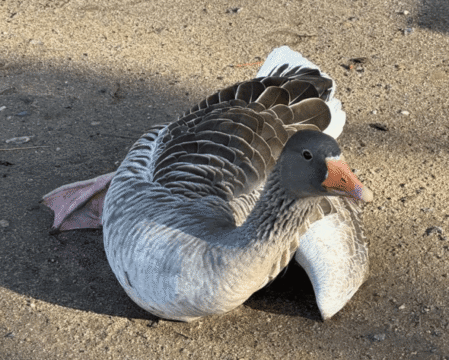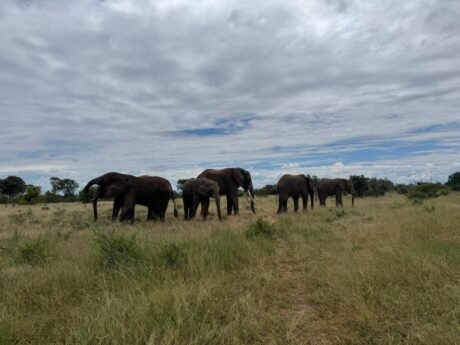The cruel canned hunting industry in South Africa isn’t just limited to lions – tigers are also victims. With a price tag of $35,000 to $40,000 per animal, these majestic creatures are highly sought after. Since tigers are not native to Africa, they are only present on the continent through illegal trafficking and captive breeding.
From Captivity to Freedom: Rescuing Tigers from a Canned Hunting Farm
Breeding big cats for commercial purposes like cub petting, roadside zoos, or trophy hunting perpetuates cruelty and suffering, and reduces them to mere objects of profit and entertainment. It incentivizes irresponsible breeding practices, inbreeding, and failing to prioritize animal welfare. Once these big cats outgrow their cuteness or become less profitable, they are often discarded, sold to substandard facilities, or even killed. This practice ignores the value and dignity of these amazing animals and uses them for human entertainment.

Fortunately, the number of visitors to canned hunting farms in South Africa has decreased in recent years due to the pandemic and border restrictions. As tigers are the largest cat species in the world, no one hunting them meant that the farm owner had to bear the high expenses of feeding them. As a result, he decided to give the tigers away.
These tigers which were once nameless and probably only identified by numbers or “that one” are now called Lily and Luna. They are two majestic, full-grown female tigers flourishing in the safe haven of Bela Bela sanctuary, no longer at risk of being targeted by bullets or other forms of harm.
Because they are not native to Africa and thus, cannot be released into the wild, the financial responsibility to provide for them is now shouldered by Wild at Life e.V.
A frequently underestimated part of conservation efforts is what happens after the immediate rescue of an animal. Feeding, caring for, and otherwise sustaining the animals in a sanctuary like Bela Bela is equally important and unfortunately not cheap.
If you’d like to help us provide for Lily and Luna
so they can continue to have an enriched life with regular meals, please consider becoming an ongoing donor.
Thank you for your unwavering support!
No results found.
Spread the news!
Help us increasing social commitment in saving endangered wild species. Express your support by sharing this article in your favorite social media channel.
Most recent news
In Turkey, stray animals face unimaginable hardships every day—from scavenging for food to suffering from illness and injury. Many are victims of abuse, neglect, and cruel practices such as poisoning and mutilation. Recent government legislation allowing mass euthanasia of stray
City pigeons live a life few people truly see. Constant noise, traffic, hunger, cold, and danger are part of their everyday reality. Injuries are common, safe nesting places are rare, and survival often depends on luck rather than care. Yet
Snares are one of the biggest threats facing wildlife across Africa.Silent, cheap, and almost invisible, these wire traps are responsible for the suffering and death of millions of animals every year. Made from wire or steel cable, snares are easy
Every year, we travel to Sri Lanka to care for animals who would otherwise have no help. Our work focuses on stray dogs and cats living on the beaches and in nearby areas we are responsible for. We provide regular
We work with a local Frankfurt-based wildlife charity called Projekt Oase – Mensch und Tier im Einklang e.V., which focuses on protecting and rescuing wild waterfowl and other birds along the Main River. Projekt Oase is a small but passionate
At our sanctuary in Zambia, the team of Wild at Life e.V. has wonderful news to share. Our nine rescued elephants — all survivors of drought or poaching — are thriving, and they continue to enjoy their days in complete
